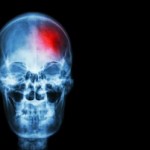 Whether you have a poor night’s sleep occasionally or it’s a common occurrence, one thing is for certain: not getting a proper sleep can wreak havoc on your health. Not only do you feel tired and low energy, but poor sleep can also negatively affect your day-to-day life by inhibiting concentration, decreasing the focus, contributing to memory loss, and much more. The moral of the story is, sleep is important, and without it we really can’t function to our best ability.
Whether you have a poor night’s sleep occasionally or it’s a common occurrence, one thing is for certain: not getting a proper sleep can wreak havoc on your health. Not only do you feel tired and low energy, but poor sleep can also negatively affect your day-to-day life by inhibiting concentration, decreasing the focus, contributing to memory loss, and much more. The moral of the story is, sleep is important, and without it we really can’t function to our best ability.
Well, new findings have uncovered even more side effects and negative consequences of poor sleep that go beyond focus and concentration. It can affect our heart and increase our risk of stroke.
Poor sleep increases risk of stroke
Advertisement
 A new study found that seniors who do not receive adequate sleep each night are increasing their risk of stroke. The researchers believe that by monitoring those seniors with poor sleep they can identify persons who are at risk to suffer from stroke.
A new study found that seniors who do not receive adequate sleep each night are increasing their risk of stroke. The researchers believe that by monitoring those seniors with poor sleep they can identify persons who are at risk to suffer from stroke.
The researchers studied the brains of seniors whose sleep was monitored prior to their death. Post-death, their brains were examined under a microscope.
The researchers uncovered that waking up numerous times throughout the night caused damage to brain tissue and blood vessels.
Atherosclerosis – hardened arteries – is associated with poor sleep, and the researchers found this association to be an independent risk factor separate from body mass index, smoking, diabetes, heart failure, and Alzheimer’s disease.
Lead investigator, Dr. Andrew Lim from the University of Toronto, Canada, said, “The forms of brain injury that we observed are important because they may not only contribute to the risk of stroke but also to chronic progressive cognitive and motor impairment. However, there are several ways to view these findings: sleep fragmentation may impair the circulation of blood to the brain, poor circulation of blood to the brain may cause sleep fragmentation, or both may be caused by another underlying risk factor.”
This is just another study that stresses the importance of having a good night’s sleep. If you have been getting up numerous times throughout the night, or are waking up tired even though you “slept,” then speak with your doctor right away in order to get a proper diagnosis, along with treatment, as you may have a sleep condition.
Many of our health functions are determinant of sleep, and so it is highly important to get a good night’s rest – your health depends on it.
